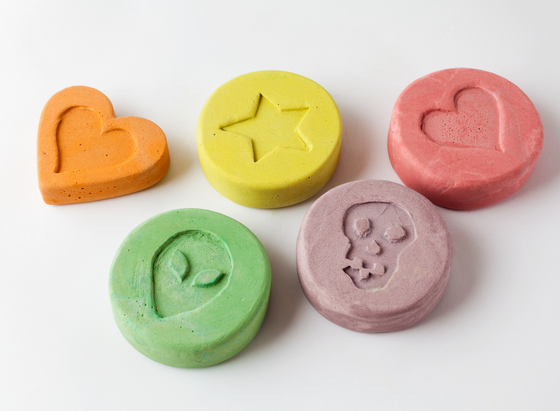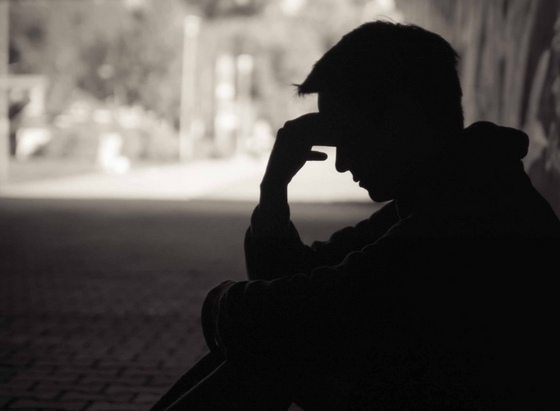Ecstasy addiction

Written by:

Medically Reviewed by:
Last Updated:
April 10th, 2025
The grips of ecstasy addiction are extremely powerful and can easily take over your life if you let it. Thankfully there is help available if you have found yourself unable to quit taking this highly addictive stimulant. Below, our experienced team at Sanctuary Lodge offers information on everything you need to know about ecstasy addiction and what to look out for in yourself or a loved one.

What is ecstasy addiction?
Ecstasy addiction, like any drug addiction, is a mental health condition that can impact someone both physically and psychologically. There are four main characteristics that define ecstasy addiction, including:
- Compulsion: experiencing an irresistible urge to use ecstasy
- Cravings: feeling the need for ecstasy when not using
- Consequences: having awareness of harmful side effects but continuing to use ecstasy regardless
- Control: being unable to exercise restraint when using ecstasy
While it can be difficult to escape from, recovery from ecstasy addiction is possible. If you or someone you know is experiencing the damaging effects of this drug, Sanctuary Lodge is an ecstasy rehab facility that can help you overcome your ecstasy addiction and regain control of your life.
The side effects of ecstasy
Ecstasy is a relatively fast-acting drug, with its effects appearing twenty to thirty minutes after consumption and usually lasting three to six hours. Its users will feel heightened senses of pleasure, euphoria and empathy, alongside an increase in energy levels and sensitivity to lights, sound and touch.
Accompanying these, you may experience negative short-term side effects, including:
- Nausea and vomiting
- Raised body temperature
- Grinding teeth or clenching jaw, also known as “gurning”
- Dilated pupils
- Dehydration
- Dry mouth
- Insomnia
- Memory loss
- Seizures
- Cardiovascular issues
With regular and frequent misuse, you may also experience long-term side effects, including:
- Nerve degeneration
- Brain damage
- Depression
- Reduced cognitive function
- Problems with memory
- Increased risk of heart attack, seizures and stroke
On top of these dangerous and potentially fatal side effects, ecstasy is manufactured in illegal labs, meaning its content and purity is unregulated. Ecstasy may be cut with other substances, including heroin, fentanyl, PCP and even rat poison. This means that overdose is a high risk, as well as other serious health complications even with just one use.
This risk is magnified significantly with ecstasy addiction. Ecstasy addiction is present when you no longer have control over your ecstasy use – you may rely on ecstasy for confidence or to numb painful emotions. You may also notice psychological withdrawal when you stop taking it. If this sounds familiar, don’t delay and seek help immediately.
How does ecstasy addiction develop?
The majority of people who start taking ecstasy do not intend to become addicted. In fact, most first-time users are introduced to the drug by friends at a party or music festival and take it recreationally. However, what many fail to realise is that this seemingly harmless one-time use can quickly develop into a full-blown ecstasy addiction, destroying not only your own health and well-being but negatively impacting your loved ones too.
Ecstasy addiction often develops in stages:
Stage one: initial use
This is when you first take ecstasy, often at a party or nightclub. You may be curious about the drug and want to experience the highs it promises, or you could experience peer pressure from friends.
Stage two: experimentation
This stage involves using ecstasy recreationally, usually at weekends or at social events. You may try to tell yourself it is just for a special occasion and taking it once in a while won’t hurt but this is still posing a great risk to your health.
Stage three: regular use
At this stage, you are using ecstasy regularly and are beginning to establish a pattern. This could also include taking it when you’re on your own. You may begin to develop a tolerance to the drug, meaning you need to take higher doses to get the same effects.
Stage four: dependence
This is when you start using ecstasy every day or several times a week. You may miss work or school, as well as social engagements, in order to take the drug. Your tolerance will continue to increase and you may start experiencing withdrawal symptoms when you try to quit.
Stage five: addiction
This is when your ecstasy use is completely out of control and you are unable to stop taking the drug even though it is ruining your life. You will experience intense cravings and your health, relationships and finances may all suffer as a result of your addiction.
Who is at risk of developing an ecstasy addiction?
Ecstasy addiction can affect anyone, regardless of age, gender, or background. However, there are certain groups of people who may be more at risk than others and these include:
- Those suffering from mental health problems – ecstasy can act as a form of self-medication for those with mental health problems such as anxiety and depression.
- Young people are more likely to experiment with drugs and those under 25 years old are most susceptible to developing an ecstasy addiction.
- People who have experienced past trauma may use ecstasy as a way to cope and block out negative experiences.
- Those who have a family history of addiction are also more likely to develop an addiction themselves.
UK statistics on ecstasy addiction
- 4.7% of people aged 15 to 24 have used ecstasy, compared to 1.8% of 25 to 34 year olds.
- In 2021, there were a total of 693 people who sought ecstasy addiction treatment.
- In 2020, there were 82 recorded ecstasy-related deaths in the UK.
Spotting signs of ecstasy addiction in a loved one
If you are worried that someone close to you may be addicted to ecstasy, it is important to be aware of behavioural changes that may point toward a problem with ecstasy. These can include:
- Changes in sleep patterns
- Loss of interest in activities that were once enjoyed
- Frequent attendance and raves or parties
- Increased energy levels
- Acting overly friendly or loving
- Withdrawing from friends and family
- Loss of appetite
- Increased secrecy and lying
- Irritability and mood swings
- Paranoia
- Anxiety and depression
Although it can be extremely difficult to broach the subject of ecstasy addiction with a family member, knowing the signs to look out for can be the first step in getting them the help they need.
Dos and don’ts for loved ones
If your family member is battling ecstasy addiction, the mix of emotions you feel can be overwhelming. You may experience anger, guilt, frustration, worry and sadness but it is important to remember that you are not alone and there is help available.
Knowing what to say and do can be tricky and so educating yourself on ecstasy addiction is vital to ensure you don’t push your family member further away. Here are our dos and don’ts when talking to a loved one with an ecstasy addiction:
Do:
- Encourage them to seek professional help
- Offer your support and understanding
- Try to have an honest and open conversation about their ecstasy use
- Make sure they know you are there for them
Don’t:
- Try to force them to quit taking ecstasy
- Ignore the problem and hope it will go away
- Get into arguments or blame them for their ecstasy addiction
- Enable their ecstasy use by providing money or shelter
- Lie on their behalf or cover up for them
As well as this, our team at Sanctuary Lodge can offer advice and resources to family members who need a little extra support surrounding ecstasy addiction. Please don’t hesitate to contact us if you have any questions or are in need of a listening ear.
Next steps
While ecstasy addiction can devastate lives, destroy relationships and wreak havoc on your health, the good news is that you can make a positive change and overcome your ecstasy addiction with professional guidance. Ecstasy addiction treatment, including ecstasy detox, can help you to defeat your ecstasy abuse and help to get your life back on track. Don’t wait until it’s too late – get help for your ecstasy addiction today and begin your journey to a healthier, happier life.





